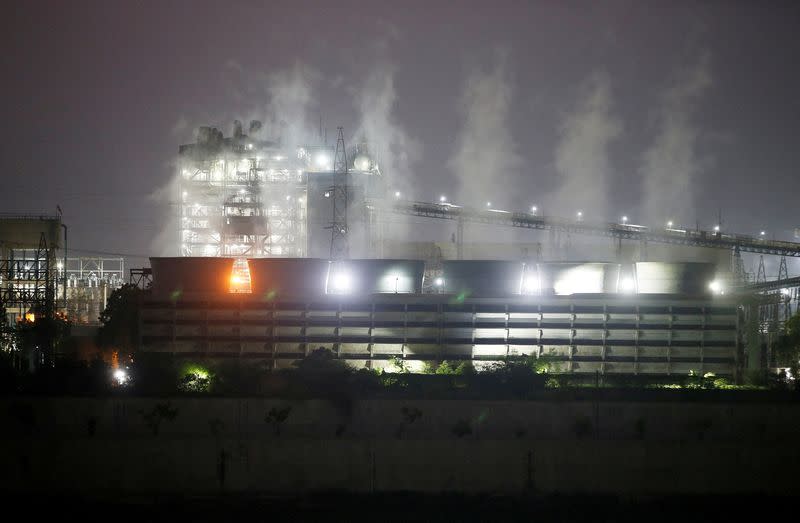India wants private money for coal-fired plants despite Western opposition
By Sarita Chaganti Singh
NEW DELHI (Reuters) - India on Tuesday asked private firms to ramp up investments in new coal-fired power plants to meet a dramatic rise in electricity demand and bridge nearly 30-gigawatts of additional requirement by 2030, despite international pressure to stop building such facilities.
India's power and renewable energy minister R K Singh in New Delhi asked private companies to invest in coal projects and "not miss the growth opportunity," according to three sources present in the meeting.
The Indian government meeting with private investors comes weeks before the U.N. climate conference, at which France, backed by the United States, plans to seek a halt to private financing for coal-based power plants, according to a Reuters report.
India's power ministry did not immediately respond to requests for comment.
The private investment share in the Indian power sector started dwindling after 2018, when it was more than, or at par with, government investments. Currently, it stands at 36% of the country's total installed capacity.
Most of the coal-based capacity under development is being set up by state-owned companies, with Adani Power and JSW Energy the only private companies building such plants.
Many private companies stopped building new coal-based plants in India over a decade ago due to a lack of financing in the absence long-term power supply bids from consumers.
In recent years, however, energy demand has outpaced expectations in India, the world's most populous country, as economy activity picked up.
Since August, the South Asian nation's energy demand rose 18% to 20% year-on-year. The government expects it to rise by at least 6% annually till end of this decade.
During the meeting, Singh said new estimates see India's peak power demand reaching 335-gigawatts by 2030 versus the present 240-gigawatts, according to the three sources.
Private power companies were told that the majority of the peak-hour electricity demand in India can be met by coal-based power stations, since storage technologies are costlier to support solar and wind-based energy generation, officials said.
A total coal-based capacity addition of 58 gigawatts is in the pipeline, leaving an expected gap of over 30-gigawatts, they said.
"The Minister assured that the government may look at funding support to such projects (from private firms) from state-run financiers such as Power Finance Corp and REC Ltd," one of the sources said.
All three sources at the meeting asked not to be identified as they were not authorized to speak to media.
Singh told the meeting that despite adding coal-based capacity, India will still meet its climate goals of shifting to 50% non-fossil-based power capacity since the country is also adding renewable energy projects.
(Reporting by Sarita Chaganti Singh; Editing by Bill Berkrot)

 Yahoo Finance
Yahoo Finance 

